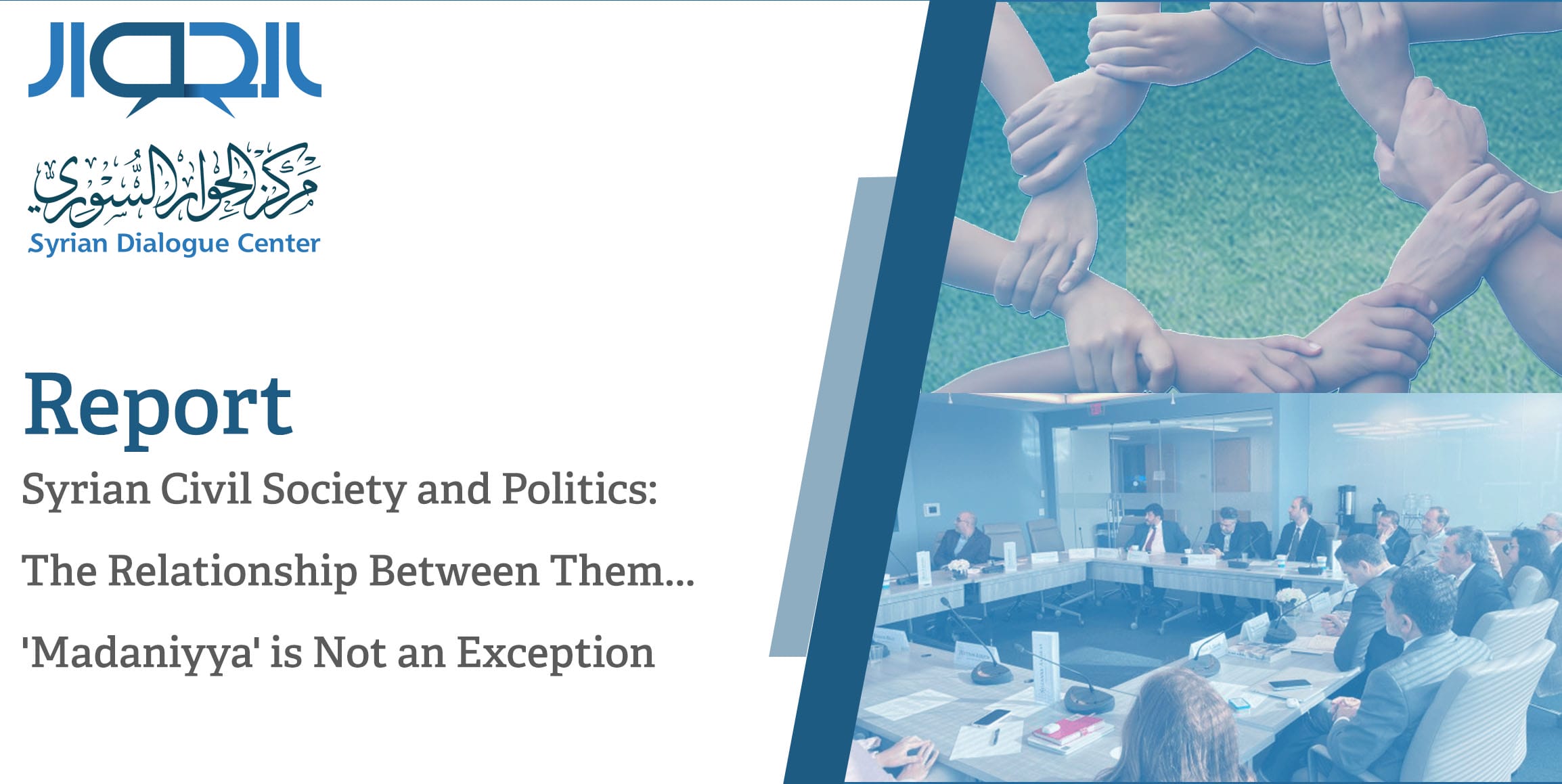
Syrian Civil Society and Politics: The Relationship Between Them… ‘Madaniyya’ is Not an Exception
Preface:
Regardless of the developments in the past regarding the concept of civil society, the term “civil society” in its current sense emerged after the birth of modern states and gained increased importance with the decline of the Eastern bloc and the advancement of the Western bloc. According to most literature, it refers to the non-profit third sector. It serves as a channel between society, the state, and the private sector and encompasses various forms of organizations such as civil society organizations, clubs, forums, volunteer teams, unions, federations, religious organizations, and many others.
The role of local civil society organizations varies according to the context in which they operate, as per both literature and practical reality. During times of peace, their efforts under ideal conditions focus on strengthening democracy and human rights, sustainable development, election culture and monitoring, and developing dialogue and understanding among various parties. They may also undertake the duty of delivering aid to those in need and providing essential services. However, during conflicts and internal strife, these organizations often intervene in humanitarian crises, provide urgent aid to victims, observe human rights, document violations, and work towards peaceful conflict resolution among various factions. Additionally, they can play a role in improving the rights of women, youth, and marginalized groups. After the cessation of conflict, these organizations typically support reconciliation processes according to their areas of expertise, assist in rebuilding communities and aiding in social and economic rehabilitation, support transparency and accountability processes, and strengthen peace and human rights culture in the affected society.
In the case of Syria, before 2011, we had a nominal civil society that worked to serve the Assad regime and was subject to the control of its security services. After the outbreak of the revolution, various civil society organizations emerged, providing coordination, health, and aid teams to two-thirds of the opposition and the regime. This opened the way for a more political and negotiation role for civil society.
This report theoretically discusses the partial existence of civil society in the political field and reflects on some practices in Arab countries like Libya, Iraq, Tunisia, Yemen, which have experienced revolutions or uprisings, and it reflects on how this situation impacted Syrian civil society. It partly discusses “Madaniyya”‘s claim in the political arena without evaluating this political role with its positive and negative aspects. Some oppose it in principle, while others support it. Therefore, this part, without adding an “evaluative” judgment, remains limited to discussing this role based on its presence and absence in this analytical report.
Read the full report (Arabic)
مؤسسة بحثية سورية تسعى إلى الإسهام في بناء الرؤى والمعارف بما يساعد السوريين على إنضاج حلول عملية لمواجهة التحديات الوطنية المشتركة وتحقيق التنمية المستدامة





